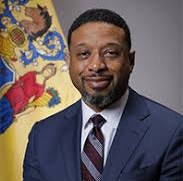 Dr. Brian K. Bridges
Dr. Brian K. Bridges
The partnership with mental health provider Uwill has served 18,223 students across 45 public and independent institutions statewide, representing the nation's first comprehensive state-level investment in free teletherapy services for all college students.
"New Jersey is rethinking student mental health — not as an add-on, but as a cornerstone of student success and our statewide college completion strategy," said Dr. Brian K. Bridges, New Jersey's secretary of higher education. "Meeting students' mental health needs is essential to keeping them on track as they navigate family, personal, work, and financial responsibilities alongside academic commitments."
The program addresses a critical gap in campus mental health services as colleges nationwide struggle with unprecedented demand for counseling resources. Mental health and emotional stress rank among the top reasons students consider leaving college, making accessible care crucial for retention and completion efforts.
The utilization data reveals how flexible scheduling dramatically expands access to care. Nearly one-third of all sessions occurred outside traditional business hours, with 19.2% taking place on weeknights and 9.6% on weekends. More than 12,000 therapy sessions in 2024 alone occurred during summer break or winter intersession, with over 1,000 sessions taking place outside New Jersey as students maintained continuity of care.
Experts add that students are seeking support across diverse areas including self-esteem, loneliness, trauma, academic concerns, and body image — reflecting the complex challenges facing today's college population as they balance work, family responsibilities, and academic demands.
The program's emphasis on culturally responsive care has proven significant, with a majority of students selecting counselors who identify as Black, Indigenous, or People of Color. A substantial portion of students also sought services in languages other than English, highlighting the importance of linguistic accessibility in mental health care.


















